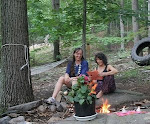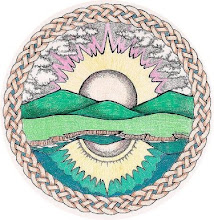The Middle East Crisis In My Backyard:
How Communities Come Apart and How They Heal
Contact: Anastasia at cell: 240.409.5347, email: SuperSleuthDSW@aol.com
Translated into my more
modern Jewish American ways these traditions of the shtetl were set, deeply
rooted in me, in a value system that carried its way into what I considered to
be a life well lived, personally, and as a part of the greater whole of
humanity; a manner of living that makes “thinking globally and acting locally”
simply a broadened perspective and an imperative born of shtetl life.
In this paradigm forgiveness and reconciliation are viewed as fundamental to the well-lived life;
trumping all other endeavors. But the matter transcends merely being at peace
with oneself, ones family and friends or neighbor, the greater world around us
and with the Divine. The very process of living by these values
demands relentless self-analysis, determination and rigorous discipline.
Contained within the endeavor lie the many gifts of alchemy; the transformation
of our humanity; the evolutionary process of converting the lead within each of
us into gold; individually and collectively.
The effort to live by
these values, day-by-day, calling up introspection and an ongoing
accountability, is an essential part of charity/social justice that begins at
home, especially with oneself. The culmination, as I have learned, is the
passing forward of these principles to the next generations by living them. In
this way the very essence of tikkun olam,
the Jewish notion of world repair, comes alive, as it once did in shtetl life
on a much smaller scale.
One need only read the
text of Jewish High Holiday rituals and prayers to see the principles of forgiveness,
reconciliation
and, above all, tsdokeh embodied throughout; not just
in words uttered during these holy days, but as precepts to be lived during the
course of the year as an essential way of being. What is transformed on the personal level in
the application of these ideologies affects, not only the individual, but also
the family. What is transformed in the family ripples outward into the
community and beyond. This is how it should naturally be, I believe.
The unexpected ways in
which these traditional values of my Jewish heritage came to the fore for me
and how I came to have them reinforced at a critical time in my life, by
simply, and not simply at all, walking myself through a fire of personal
challenge, I have come to call the “Jewish/Muslim Controversy” in my backyard
that gave me the title for this book, The
Middle East Crisis In My Backyard: How
Communities Come Apart And How They Heal.
The experience changed
my life, both personally and professionally. I hope it will inspire yours.
This book, beyond all
else, is a gift to my children and my children’s children. I want them to know of the yearnings of my heart in a
detailed way that only memoir can offer -- and -- how these were formed through
the interactional by-play of my personal relationships, those of my community
and myself. In this special way I want them to also learn how practically
significant, sacred and spiritually awakening my journey has been.
From my effort I want my
children to know and live by values that shaped me that I most revere; many of
them rooted in the culture of the shtetl. I trust these to be a pathway to the
higher levels of human development, family and community well-being and world
peace; again tikkun olam.
Not that I believe that
the old ways of the shtetl should be embraced, wholesale, but that, as with
other traditional cultures in the process of dying out or already having died
out, there are things to learn from a heritage, such as this, that can help us
live more whole-heartedly and beautifully in our contemporary lives than we
could ever dream up on our own, even by plowing through all the knowledge
presently archived on the internet.
To read about an ancient
or traditional culture is not the same as knowing it in one’s heart and soul.
This soulfulness must be preserved, if at all possible. And we, of the
generations that can still convey remnants of the shtetl way of life through
direct contact, albeit it second hand,
are carriers, perhaps the last, of a great cultural knowledge, wisdom and experience
that must be honored, if humanity is to now grow beyond itself.
But how does a
shtetl-influenced Wandering Jew such as I had become, by the time of the tale
I’m about to tell, make the transition from anti-Semitic Jew, which I had also
become, to being once more a “good Jew.”?
This is my tale of how I made the shift and how in effecting it I
validated the profound words and thinking of my dear friend, Rabbi Edwin
Friedman –
“There is an intrinsic
relationship between our capacity to put families together (groups or other
organizational systems) and our ability to put ourselves together.”
(Marcia) Anastasia
Rosen-Jones
Passover Eve, April 22,
2016







